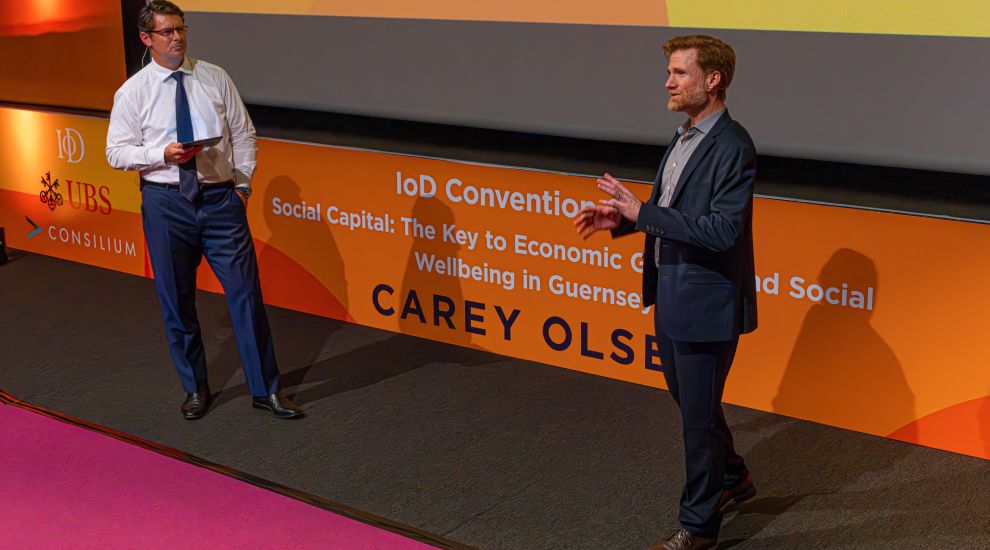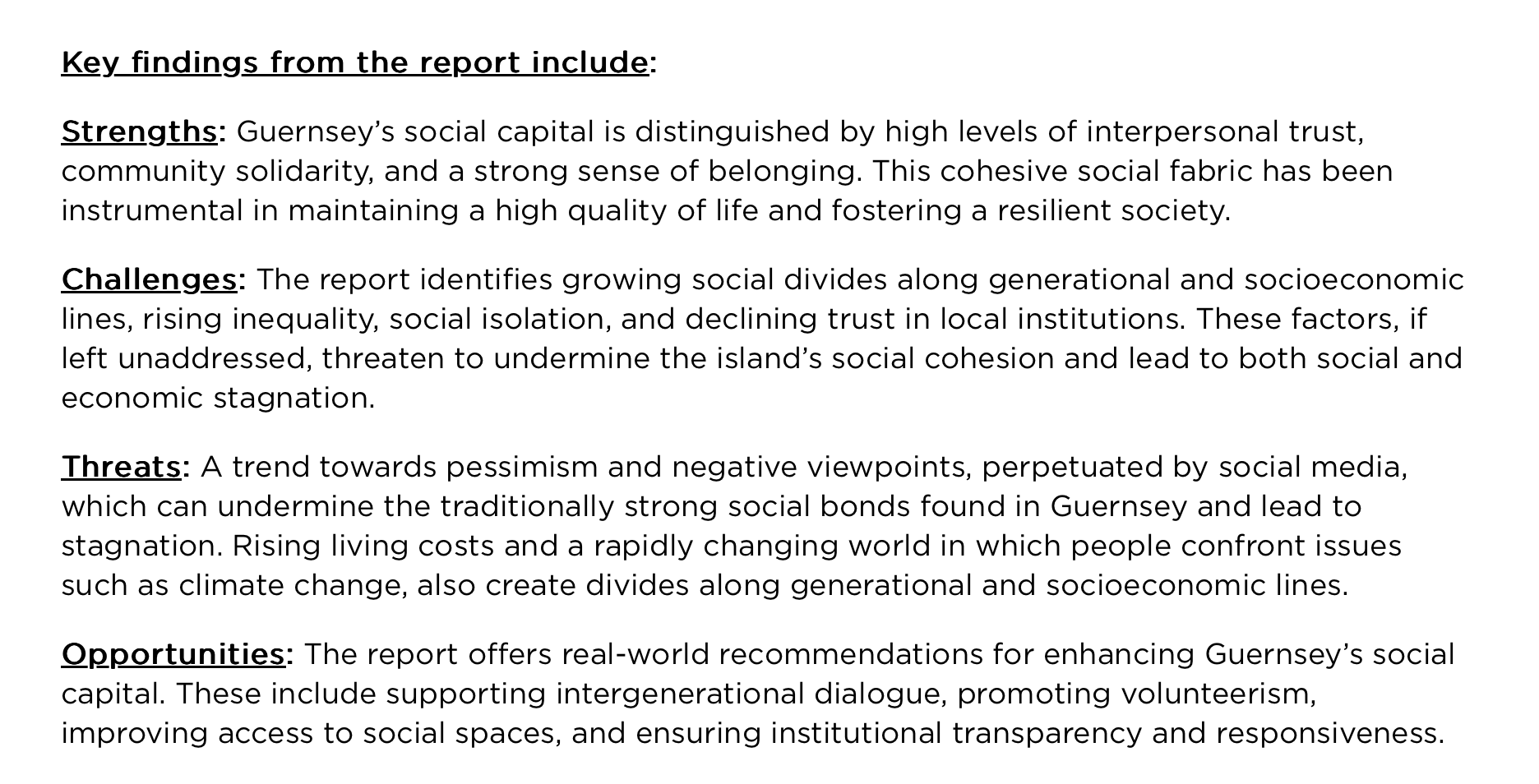


A world-first report examining social capital has found Guernsey is not doing enough to meet the challenges it faces - with a "glass-half-empty" attitude among many people.
There are many positives in the island's community too, the author has said - with an opportunity for those to be built on.
The Institute of Directors (IoD) Guernsey commissioned the report - which details the impact of Social Capital on the island’s economic, business and community wellbeing.
Report author, Tristan Claridge is the Director of the Institute of Social Capital in Brisbane, Australia and he said that social capital is essentially the people who live and work in the island, and the connections they have and make.
Having spent time in Guernsey earlier this year, he extensively interviewed 27 individuals before prepping questions for a survey that was then completed by more than 100 people, across a range of demographics.
He found that Guernsey's social capital is "very strong in many ways".
"It's an incredibly tight knit community, a lot of people know each other, and there's some really strong norms and trust and social identity that bind people together. Generally speaking, people are quite caring, and they want what's best for Guernsey and other people who live in Guernsey."
The report also lists the negatives too which also include aspects of the small, close knit community that Guernsey is.

The IoD report can be read in full HERE.
"You often find those weaknesses and sometimes they're actually related to each other," said Mr Claridge.
"This is a common characteristic of capital, all forms of capital that you tend to have positives as well as negatives arising from them....a factory which is physical capital might make products that we need, but it might also result in air pollution or noise or things that we don't want, so this is common."
Mr Claridge said that the challenges found through the research he carried out reflected a tendency to focus on the negative with a "glass half empty" view of the world.
"...a lot of them related to things that you've already mentioned, like the the tendency towards negative narratives and to see the glass half empty rather than half full. And that can drive a lot of other things that people are concerned about (such as) reputational risk. It's very much related to those negative narratives that if something goes wrong, people are likely to talk about it."
The report - described as a global first research project into social capital - was commissioned by the IoD, with Chairman Glen Tonks saying it was an idea that came to him after his positive experiences of moving to, and living and working in Guernsey.
He wanted to see what the actual position was around Guernsey's social capital as he believes it will be useful for businesses, and politicians.
“This world-leading report is not merely an academic exercise but a practical guide for stakeholders in Guernsey," he said.
"Whether you are a policymaker, business leader, community organiser, or resident, the insights provided here are intended to inform and inspire actions that will strengthen Guernsey’s social capital. and position the island for continued success in an increasingly complex and interconnected world.”
Mr Claridge added, that Guernsey is well placed to tackle the challenges it faces - if it utilises its social capital, which is essentially its people.
"The island's ability to adapt and reinvent itself, coupled with the strong collective identity of its residents, suggests that with the right efforts to address the existing challenges, Guernsey's social capital can be strengthened and better utilised to enhance the overall wellbeing of its community."
Pictured top (l-r): Glen Tonks and Tristan Claridge (Chris George).
For further detail on the report results and insight from Mr Claridge and Mr Tonks, read the November/December issue of CONNECT, out at the beginning of November.
Comments
Comments on this story express the views of the commentator only, not Bailiwick Publishing. We are unable to guarantee the accuracy of any of those comments.